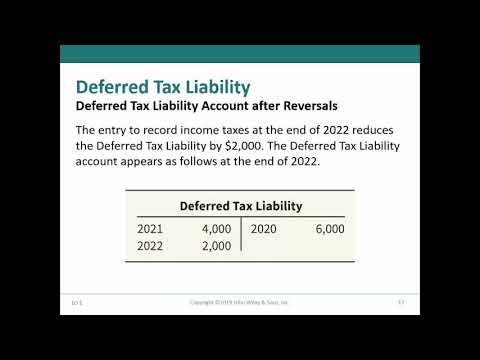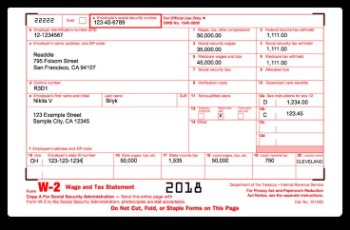Content

You might not have charged any interest, but the IT department assumes the interest accrued on the principal as your income. Hence, it calculates tax, eventually adding to your final tax statement. Yield maintenance is a prepayment premium that allows investors to attain the same yield as if the borrower made all scheduled interest payments. Gift loans of less than $10,000 are exempt from imputed interest, as long as the money isn’t used to buy income-producing assets.

Imputed interest may apply to a family loan whereas parents may lend their son or daughter $100,000 to buy a house at no interest over 20 years. The IRS wants their share and will force you to charge interest using the Applicable Federal Rates as a minimum. To determine the interest, you would do a Present Value calculation at the AFR. Note, the tax code exempts gift loans of under $10,000 from the imputed interest rule.
What is Imputed Interest?
The constant yield method is one of two accepted ways to calculate the accrued discount of a bond that trades in the secondary market. A below-market interest rate is an interest rate lower than that currently being offered for commercial loans extended by banks. Investopedia requires writers to use primary sources to support their work. These include white papers, government data, original reporting, and interviews with industry experts. We also reference original research from other reputable publishers where appropriate.
- Now, let’s think about how this impacts your friends taxable income.
- The minimum interest rate that the government assumes is paid on a loan, even if the actual interest rate is lower.
- You would still pay taxes as if you had charged at the AFR rate or if you had charged interest at a lower rate than the AFR.
- A zero-coupon bond is a debt security that does not pay interest but instead trades at a deep discount, rendering a profit at maturity when the bond is redeemed for its full face value.
- Hence, AFR is applied to the actual amount paid for the bond.
- Let’s say a father gives an amount of $ 60,000 to his son for education purposes for a period of 2 years.
- See Example LI 6-2 for an example of how to apply the interest method to an instrument with an increasing interest rate.
Loans made at rates below the AFR may result in imputed interest. • If you lend someone money at a “below-market-rate” of interest, you may owe tax on what the IRS calls “imputed interest,” even if little or no interest is paid to you. This Portfolio examines the tax treatment of debt-instrument issuers and holders under §1271 and reviews the original issue discount rules and Treasury regulations interpreting them.
What kinds of loans have imputed interest
Although there may also be a gift tax liability on the mother, the mother must recognize the interest as income while the son is considered to have received the gift for which he does not pay taxes. Imputed interest is recognized as income when below-market interest rates are charged for either loans (IRC §7872) or seller-financed sales of property (IRC §1274, §483).

The corporation may act as an agent, borrowing money from a 3rd party, then lending the money to shareholders or employees. In these cases, the IRS will interpret the transaction as a dividend paid to the borrowers, who then paid the interest on the loan. Used in accounting to refer to interest that has effectively been paid to a bondholder, even though no money has actually been paid. Other uses of the AFRs include determining the present value of an annuity, solving for leaseback and/or sale-leaseback transactions, and determining the original discount of bonds to name a few.
TURBOTAX ONLINE GUARANTEES
By imputing interest on the note at minimum rates published by the IRS, taxpayers can avoid IRS penalties and restatement of income and deductions for failure to impute interest. The most common usage of the AFRs is to compute imputed interest. The IRS “imputes” or determines for the lender the interest income they would have received subject to the AFR rates if they extended a below-market loan which often is interest free.
Remarkable Rate Of Increase – Tax Prescribed Interest Rates … – mondaq.com
Remarkable Rate Of Increase – Tax Prescribed Interest Rates ….
Posted: Wed, 15 Feb 2023 08:00:00 GMT [source]
The IRS also applies imputed interest on some bonds so that tax is paid every year on the interest, even if the bondholder does not receive coupon payments until maturity. Imputed interest is a term used in tax law to describe a situation where a lender charges no interest on a loan, but the IRS considers the loan to have been made at an interest rate that is implied by market conditions. In such cases, the borrower may be required to pay taxes on the difference between the actual and imputed interest rates. There are several exemptions to these rules, including loans made for the purpose of buying a primary residence or funding a business or investment. The calculation of imputed interest is generally based on the difference between the actual interest rate and the market interest rate for a similar loan. The IRS thus uses imputed interest to collect tax revenues on loans or securities that pay little or no interest. Imputed interest is important for discount bonds, such as zero-coupon bonds and other securities sold below face value and mature at par.
This is done to prevent individuals from avoiding taxes by not charging or paying interest on loans. This concept is often used in the context of tax laws, where imputed interest is used to calculate the taxable amount for a loan or other form of financing. If you have a simple tax return, you can file for free with TurboTax Free Edition or TurboTax Live Assisted Basic.
You would still https://intuit-payroll.org/ taxes as if you had charged at the AFR rate or if you had charged interest at a lower rate than the AFR. The IRS would impute the difference in interest income to you in that case. Borrowing from someone you know might be a better way of financing as the federal government sets the imputed interest rates at rates far below the market lending rates. However, remember that there is no free lunch, and a misunderstanding or overlooking can result in hidden tax penalties for your generous lenders. Imputed interest is the interest that is estimated to be collected by the lender, regardless of what the lender actually receives.
Imputed interest.
Demand What Is Imputed Interest? s are loans that are payable on demand; term loans have a stipulated duration. Nongift term loans are treated as original issue discount , where the OID interest must be reported annually by the lender. Gift loans and nongift demand loans are taxed to the lender on the difference between the applicable AFR and the actual rate charged. This can happen when a lender charges a lower interest rate than the market rate, or when a borrower receives a loan from a family member or friend at a below-market interest rate. In such cases, the IRS may require the borrower to pay taxes on the difference between the actual interest rate and the imputed interest rate. In 1984, the Tax Reform Act set provisions for applicable federal rates .
- Instruments such as loans from family or friends, or discounted bonds that are purchased below face value, all can generate a requirement to impute the interest to the IRS.
- Loans made at rates below the AFR may result in imputed interest.
- What happens when you lend money to your family/friend/colleague?
- The sum is often given as an annual rate, however interests can be computed for periods longer or less than a year.
